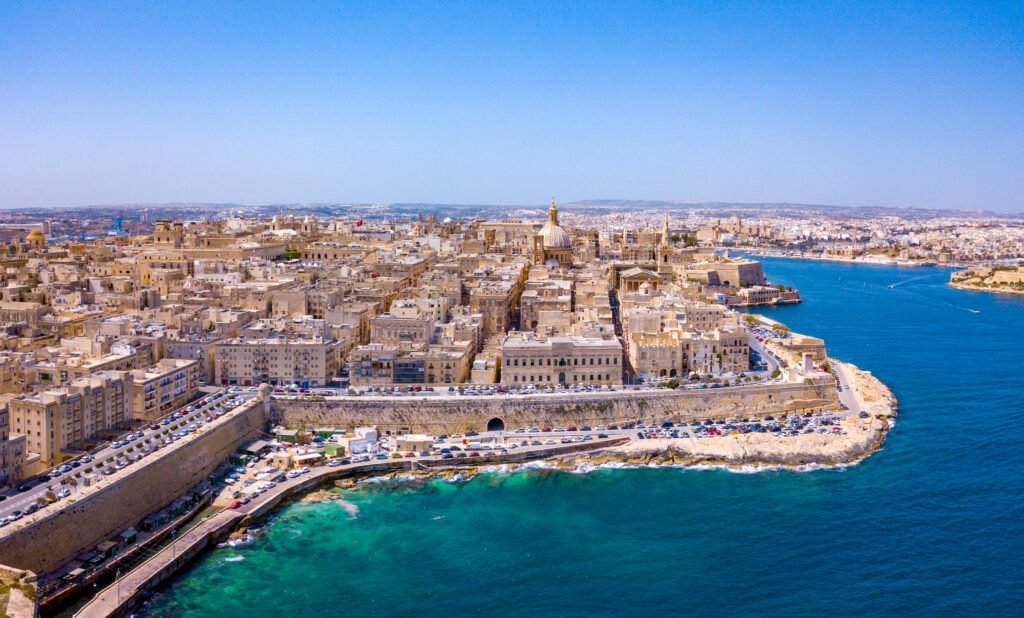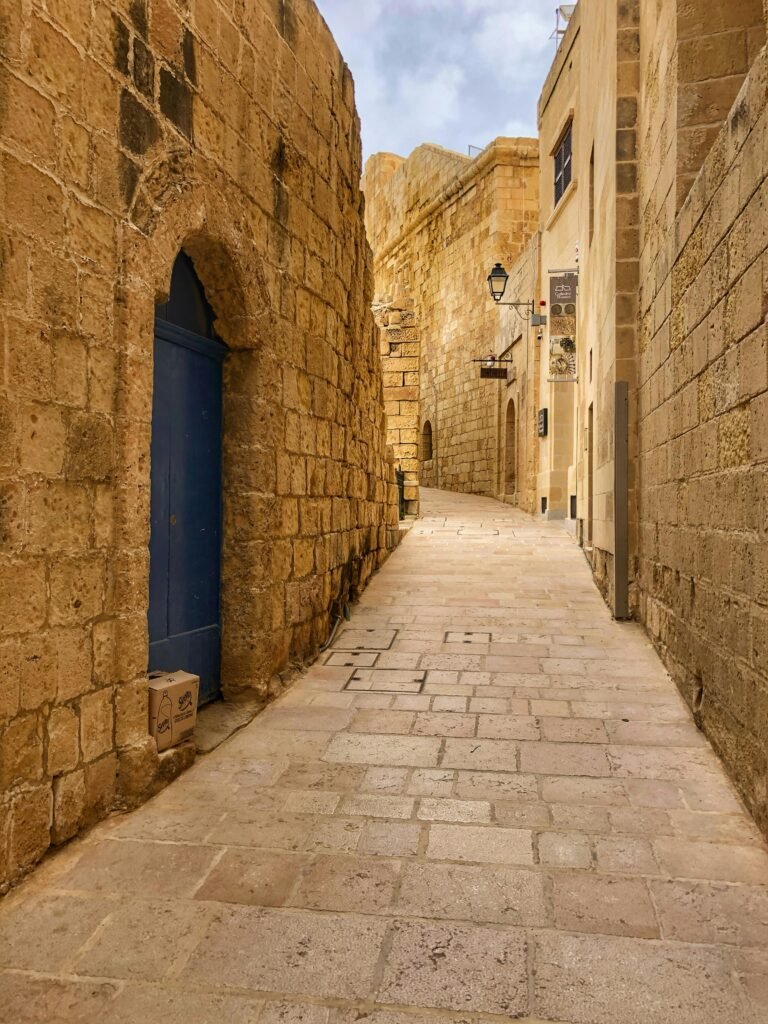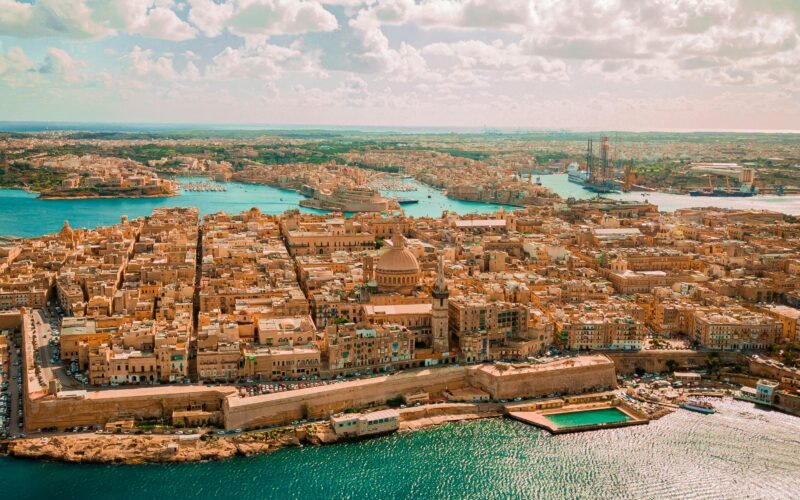If you’ve been daydreaming about living by the sea, enjoying sunny weather most of the year, and being part of a friendly community, Malta might be on your list.
But what is life here actually like?
Let’s talk about everything you should know.
The Climate and Scenery
Malta is one of the sunniest places in Europe, with around 300 days of sunshine a year. Summers are hot and dry, with temperatures often around 30°C in July and August, while winters are mild, with daytime temperatures around 13–16°C. Rain is rare outside the cooler months, which makes it easy to spend time outdoors all year round.

You’ll be surrounded by the sea wherever you go. The coastline has sandy beaches like Mellieħa Bay, rocky swimming spots, and crystal-clear water perfect for snorkelling.
Even if you don’t live right by the beach, you can usually get to one in under 30 minutes. There are also regular ferries to Malta’s smaller islands, Gozo and Comino, which are quieter and perfect for weekend breaks.
Everyday Life and Cost of Living
One of the main reasons people choose Malta is the mix of quality of life and affordability compared to other Western European countries. While it’s not the cheapest place in Europe, your money can stretch further than in London, Paris, or Rome.
For a couple living modestly but comfortably:
- Rent for a two-bedroom apartment in a popular area can range from €1,200 to €2,000 per month. In quieter villages or on Gozo, you can find places for less.
- Utilities (electricity, water, internet) usually cost between €150 and €300 per month.
- Groceries and dining out are generally cheaper than in Northern Europe. You can enjoy a decent meal at a local restaurant for €15–20 per person.
- Public transport is affordable, and many people also use small cars or scooters.
If you’re a retiree, you’ll find that your pension may go further here, especially if you avoid the more expensive, tourist-heavy areas.
We’ve also covered: Coût de la vie à Malte
Language and Community
English is one of Malta’s two official languages (the other is Maltese), so you can communicate easily from day one. This makes things like opening a bank account, visiting the doctor, or joining local activities much simpler.
The local culture is welcoming and community-focused. People tend to be friendly, and it’s common to greet neighbours and chat with shopkeepers. There’s also a large expat community from the UK, Italy, France, and many other countries.
You’ll find Facebook groups, local meetups, and community events that make it easy to meet new people and get advice.
Work, Internet, and Remote Life

For digital nomads or remote workers, Malta is well-prepared. The Internet is fast and widely available, with many cafés and co-working spaces offering reliable connections. In areas like Sliema, St. Julian’s, and Valletta, you’ll find plenty of modern spots to work from, plus a social scene for networking after hours.
Malta also has a Digital Nomad Residence Permit, which allows non-EU citizens to live here for up to a year (and renew for up to three years) if they work remotely for an overseas company or run their own business online. EU citizens can move here without needing a visa.
Also read: 7 meilleurs espaces de co-travail à Malte
Health and Safety
Malta is considered a safe country, with low crime rates compared to many other destinations. Violent crime is rare, and walking around in the evenings feels comfortable in most areas.
Healthcare is another strong point. The public health system is free or low-cost for residents who qualify, and there are also many private clinics and hospitals. Doctors and nurses generally speak English, which helps a lot in emergencies or when discussing treatments.
Culture and Lifestyle
Despite its small size, Malta is full of history and culture.
Valletta is a UNESCO World Heritage Site packed with museums, palaces, and churches, while Mdina, the old walled city, feels like stepping back in time. There are festivals throughout the year, from village celebrations with fireworks to international music and art events.

Because of its location in the Mediterranean, Malta is also a great travel base. You can fly to Italy, Spain, France, or Greece in just a couple of hours. Many residents enjoy taking short breaks to other countries while keeping Malta as their main home.
Things to Keep in Mind
Life in Malta is not without its challenges.
Traffic can be heavy during rush hours, especially in central areas. Popular places like Sliema and St. Julian’s can get crowded in the summer. Rent in the most in-demand areas has risen in recent years, and new construction is common in growing towns.
However, it all comes down to whether you’re willing to compromise. After all, every relocation to a new country comes with its pros and cons.
Is Malta Right for You in 2025?
If you’re looking for a place with year-round good weather, a relaxed lifestyle, easy communication in English, and a mix of history, culture, and modern conveniences, Malta is worth considering. Whether you want a lively social life in the heart of the action or a quiet home in a small village by the sea, you can find your version of paradise here.
If you decide to make the move, a local relocation service like Expatax.mt can help you handle the practical side, from residency paperwork to setting up a home, so you can focus on settling in and enjoying your new life.








